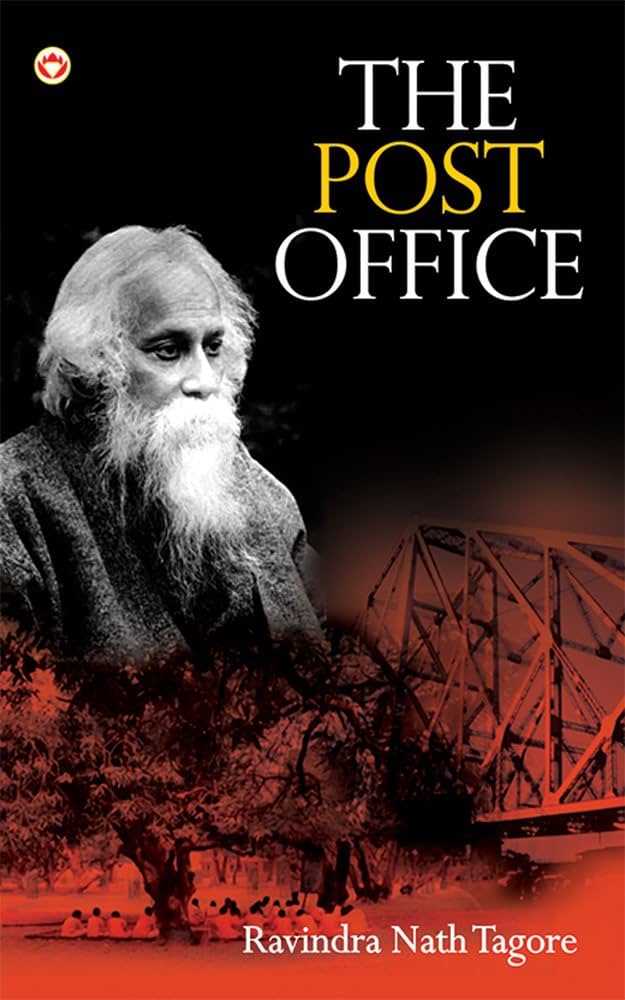Book Review: The Post Office
Title:
The Post Office
Author:
Rabindranath Tagore
Publication:
Macmillan
Publication Year:
1912
Genre:
Play, Drama
Language:
English (Translation of original Bengali work)
About the Author
Rabindranath Tagore was a versatile and eminent Bengali polymath, who became the first non-European to win the Nobel Prize in Literature in 1913. His literary works, ranging from poetry and short stories to dramas and novels, have greatly influenced not only Indian literature but also global literary traditions. His works emphasize humanism, spirituality, and the deep connection to nature and the human soul. *The Post Office* is one of his most beloved plays, expressing his philosophical and social ideas through simple yet poignant dialogue.
About the Book
*The Post Office* is a one-act play by Rabindranath Tagore that tells the story of a young boy, Amal, who is confined to his house by an illness. He dreams of the outside world and yearns for freedom, hoping that a letter or a messenger will bring him news of the world beyond his reach. The play explores themes of isolation, hope, and the human desire for connection. Amal’s interactions with the people around him, particularly his caretaker and the postman, highlight the universality of human emotions and the importance of communication in overcoming loneliness. The play is a deeply emotional and philosophical reflection on life, death, and the possibility of transcendence.
Language of the Book and Writing Style
Tagore's language in *The Post Office* is simple yet profound, capturing the emotional depth of the characters’ desires and fears. The play is written in a conversational style, making it accessible to a wide audience. The dialogue, while straightforward, is rich in meaning and is designed to provoke thought and reflection. Tagore’s writing seamlessly blends lyrical beauty with profound philosophical insights, making the play both emotionally resonant and intellectually stimulating.
My Opinion About the Book
*The Post Office* is a heart-wrenching and thought-provoking play that showcases Rabindranath Tagore’s ability to explore complex emotional and philosophical themes with simplicity. I found it deeply moving and meditative, and it reminded me of the power of human connection and the longing for something beyond the immediate world. This play is timeless and speaks to the universal human experience, making it a must-read for anyone interested in Tagore’s profound insights into life and human nature.
Morals
Hope and connection transcend physical boundaries, and the human spirit remains resilient even in the face of isolation and uncertainty.
